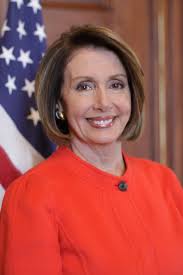by Tony Wikrent
Economics Action Group, North Carolina Democratic Party Progressive Caucus
Strategic Political Economy
Sean Wilentz [New York Review of Books, October 10, 2019 issue]
Book review of American Carnage: On the Front Lines of the Republican Civil War and the Rise of President Trump, by Tim Albert
….After Barack Obama was elected president, the Koch brothers and the Donors Trust of dark money funders (to which the Kochs were leading contributors) would mobilize and subsidize the Republican base in the so-called populist revolt they named the Tea Party…. when Trump seized control of the GOP in 2016, he reaped the populist whirlwind that Richard Nixon began sowing nearly half a century earlier and that the Bush administration—their administration—had whipped to hurricane force….
By the time Alberta’s account gets underway, most of the political dynamics behind the events he describes were long established and extremely powerful. Some of the book’s major figures, like former House Speaker John Boehner (who was also one of its principal sources), were remnants from earlier phases of the party’s strife, and developments like the growth of the Tea Party or the uprisings of the House Freedom Caucus make sense only as outgrowths of previous internecine battles. Most importantly, by 2008, the Republican Party had already become what the political scientists Thomas E. Mann and Norman J. Ornstein would call “an insurgent outlier” in American politics: “ideologically extreme… scornful of compromise; unpersuaded by conventional understanding of facts, evidence and science; and dismissive of the legitimacy of its political opposition.” Alberta has written, in short, a book that is more denouement than drama, detailing the fall of a hollow GOP establishment that, having abandoned normal party politics in favor of relentless polarization, was already teetering. While American Carnage describes the outcome of the party’s radicalization, it completely misses—indeed, fundamentally misunderstands—a major impetus behind Trump’s ascendancy: the destructive presidency of George W. Bush….
[Alberta’s account] cannot explain how Trump could so swiftly capture virtually an entire political party. A plausible answer to that puzzle is hiding in plain sight in Alberta’s book. Although Trump came into office with majorities in both houses of Congress, and although, as Alberta notes, the White House ceded control over domestic legislation to Senate Majority Leader McConnell and Speaker Paul Ryan, the Republicans had terrible difficulty scoring legislative wins. Most galling to Trump as well as the party’s congressional leadership was the failure to repeal Obamacare, one of the GOP’s core campaign pledges since the program began. On two fronts, though, Republicans moved with absolute assurance: the approval by the Senate of right-wing nominees to the federal bench, including Supreme Court justices Neil Gorsuch and, after a brutal, unexpected fight, Brett Kavanaugh; and the rapid approval of a fiercely regressive tax bill in 2017. Control of the courts for the Christian right and the Federalist Society, tax windfalls and deregulation for the donor class: these were the causes that truly stirred the GOP majorities in Congress. It’s not simply that the recumbent Republicans are intimidated by the party base that Trump has captured; they are motivated chiefly by right-wing dogma and their own baseness, which Trump understands and manipulates.
Chris Hedges [Truthdig, via Naked Capitalism 9-28-19]
Impeaching Donald Trump would do nothing to halt the deep decay that has beset the American republic. It would not magically restore democratic institutions. It would not return us to the rule of law. It would not curb the predatory appetites of the big banks, the war industry and corporations. It would not get corporate money out of politics or end our system of legalized bribery. It would not halt the wholesale surveillance and monitoring of the public by the security services. It would not end the reigns of terror practiced by paramilitary police in impoverished neighborhoods or the mass incarceration of 2.3 million citizens. It would not impede ICE from hunting down the undocumented and ripping children from their arms to pen them in cages. It would not halt the extraction of fossil fuels and the looming ecocide. It would not give us a press freed from the corporate mandate to turn news into burlesque for profit. It would not end our endless and futile wars. It would not ameliorate the hatred between the nation’s warring tribes—indeed would only exacerbate these hatreds.
Impeachment is about cosmetics. It is about replacing the public face of empire with a political mandarin such as Joe Biden, himself steeped in corruption and obsequious service to the rich and corporate power, who will carry out the same suicidal policies with appropriate regal decorum.

 Meritocracy is the simple argument that the best person for the job should do it and that our system tends to put the best person for a job in the position.
Meritocracy is the simple argument that the best person for the job should do it and that our system tends to put the best person for a job in the position.

 The bottom line here is that there was a referendum, and “leave” won.
The bottom line here is that there was a referendum, and “leave” won.